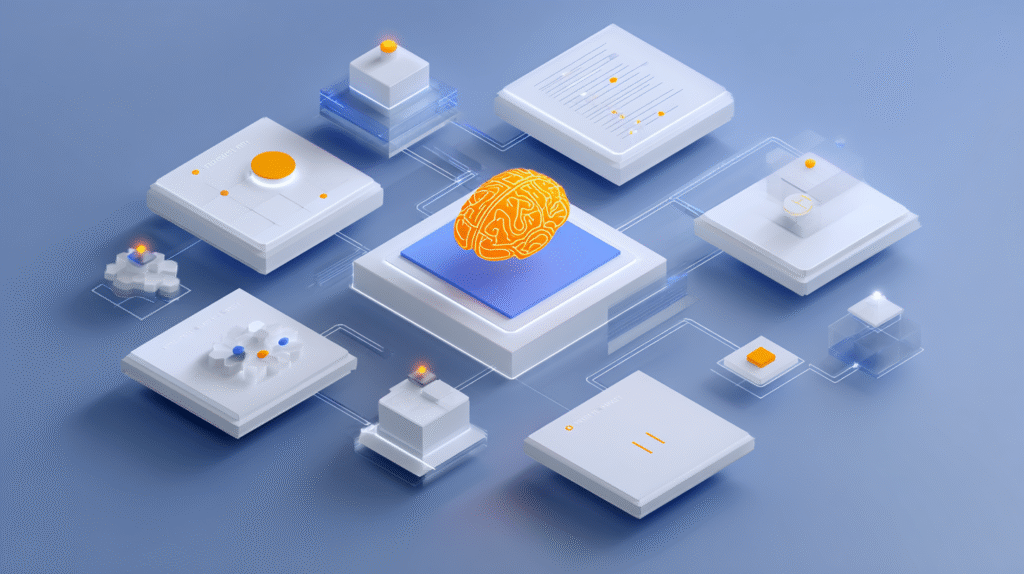Imagine a work environment where nurses spend less time on tedious paperwork and more time providing direct patient care. This vision is becoming a reality at Tampa General Hospital, located in the heart of Florida, as they embrace the revolutionary potential of artificial intelligence (AI) in healthcare. By leveraging AI technology, the hospital aims to enhance nursing efficiency and alleviate the persistent challenges of nurse burnout and extensive documentation time.
The Role of AI in Healthcare
Artificial intelligence has emerged as a game-changing force in the healthcare sector, particularly for nursing professionals. With AI algorithms designed to streamline clinical documentation processes, hospitals can significantly enhance operational efficiency. For instance, the use of ambient listening technology allows AI systems to record patient interactions in real time, thus reducing the workload on nurses.
These advancements not only improve workflow but also pave the way for better patient outcomes, marking a significant shift towards a more technology-driven healthcare landscape. By implementing AI solutions, Tampa General Hospital is setting a precedent for medical facilities across Florida and beyond.
Key Challenges Faced by Nurses
As healthcare professionals are all too aware, nursing can be overwhelming, particularly due to the extensive documentation required. Nurses often find themselves spending a large portion of their shift on electronic health record (EHR) entries rather than direct patient care. This time-consuming practice is a significant contributor to nurse burnout, leading to decreased job satisfaction and high turnover rates.
Moreover, the volume of data nurses are expected to manage can detract from the quality of patient interactions, which is the heart of nursing practice. Addressing these challenges through advanced technology is no longer optional but a necessity in improving healthcare delivery.
How AI Can Address Nurse Burnout and Documentation Time
By incorporating AI technologies, Tampa General Hospital aims to create a supportive and efficient work environment for its nursing staff. Here are some ways in which AI is specifically targeting the core issues faced by nurses:
- Automating Documentation: AI-driven tools can automatically capture patient data during consultations, significantly reducing the time nurses spend on administrative tasks.
- Natural Language Processing: Empowering AI systems with natural language processing capabilities allows for efficient transcription of patient interactions, enabling nurses to focus on care.
- Predictive Analytics: Using predictive modeling, AI can help anticipate patient needs and streamline workflow, thereby alleviating pressure on nursing staff.
These innovative approaches not only save time but also enhance accuracy in clinical documentation, improving patient safety and care quality.
The Implementation of Ambient Listening Technology
One of the most exciting advancements at Tampa General Hospital is the integration of ambient listening technology, which allows AI systems to “listen” in on conversations between patients and nurses. This technology actively records, transcribes, and organizes interactions without requiring any manual input from the nurse. As a result, nurses can dedicate their time and attention entirely to patient care rather than being interrupted by documentation processes.
For instance, when a nurse discusses a patient’s condition or treatment plan, the AI captures this information seamlessly, enabling the nurse to engage in meaningful dialogue without the distraction of note-taking. The recorded data is then integrated into the patient’s EHR automatically.
Providing Value to Healthcare Professionals
The push towards AI integration at Tampa General Hospital speaks directly to the needs of healthcare professionals. Nurses in Florida and across the nation are increasingly overwhelmed with administrative tasks, leading to challenges in job satisfaction and patient care quality. AI in nursing not only empowers professionals to provide the care that their patients deserve but also assists with real-time data insights that can guide clinical decision-making.
Moreover, with the rise of AI technologies, healthcare organizations can enhance their recruitment strategies. By cultivating an environment where technology effectively supports nurses, hospitals can attract and retain top talent, fostering a culture of innovation and excellence in patient care.
Data-Driven Perspectives
Studies indicate that technology integration in nursing can lead to a 20-30% reduction in time spent on documentation, allowing for more contact time with patients. In Florida, where the healthcare system continuously evolves to meet the demands of a growing population, these improvements are crucial. By embracing AI, Tampa General Hospital is not only enhancing operational efficiency but also setting a benchmark for other healthcare institutions striving to achieve similar results.
Collaboration Between Technology and Nursing Staff
Successful implementation of AI solutions requires collaborative efforts between nursing staff and technology providers. Nurses must be actively involved in the design and refinement process of AI tools to ensure that these systems effectively meet their needs. Training programs should be developed to familiarize nurses with these new technologies, enabling them to leverage AI effectively in their daily routines.
By prioritizing a collaborative approach, healthcare facilities can significantly enhance the user experience of AI solutions, ensuring that the technology aligns with the clinical workflow rather than impeding it.
Looking Ahead: The Future of Nursing with AI
The future of nursing in Florida augurs well with the integration of AI solutions like those being pioneered at Tampa General Hospital. As AI for nurses continues to evolve, hospitals are expected to see a shift in role responsibilities, focusing more on patient engagement and care coordination. This transformative phase implies a workforce empowered by technology to improve healthcare delivery comprehensively.
Nurses, equipped with AI tools, will likely experience enhanced job satisfaction, better work-life balance, and a renewed focus on patient-centric care. Furthermore, healthcare organizations will benefit from improved patient outcomes and satisfaction ratings, essential metrics in today’s competitive healthcare landscape.
Conclusion
As Tampa General Hospital embraces artificial intelligence to transform nursing workflows, the implications for the healthcare industry at large are profound. By leveraging ambient listening technology and AI-driven solutions, the hospital sets a new standard for nursing efficiency and patient care.
Healthcare professionals, nurses, and hospital administrators alike must remAIn proactive in exploring the benefits of AI technologies that ease the burden of documentation and ultimately enhance patient interactions. For healthcare facilities navigating similar challenges, it is crucial to explore AI solutions that not only bolster nurse efficiency but also positively impact patient care outcomes.
At Pulivarthi Group, we believe in harnessing technology to empower healthcare professionals. We invite you to explore AI solutions tailored to transform nursing experiences and improve the quality of patient care in your institution.





